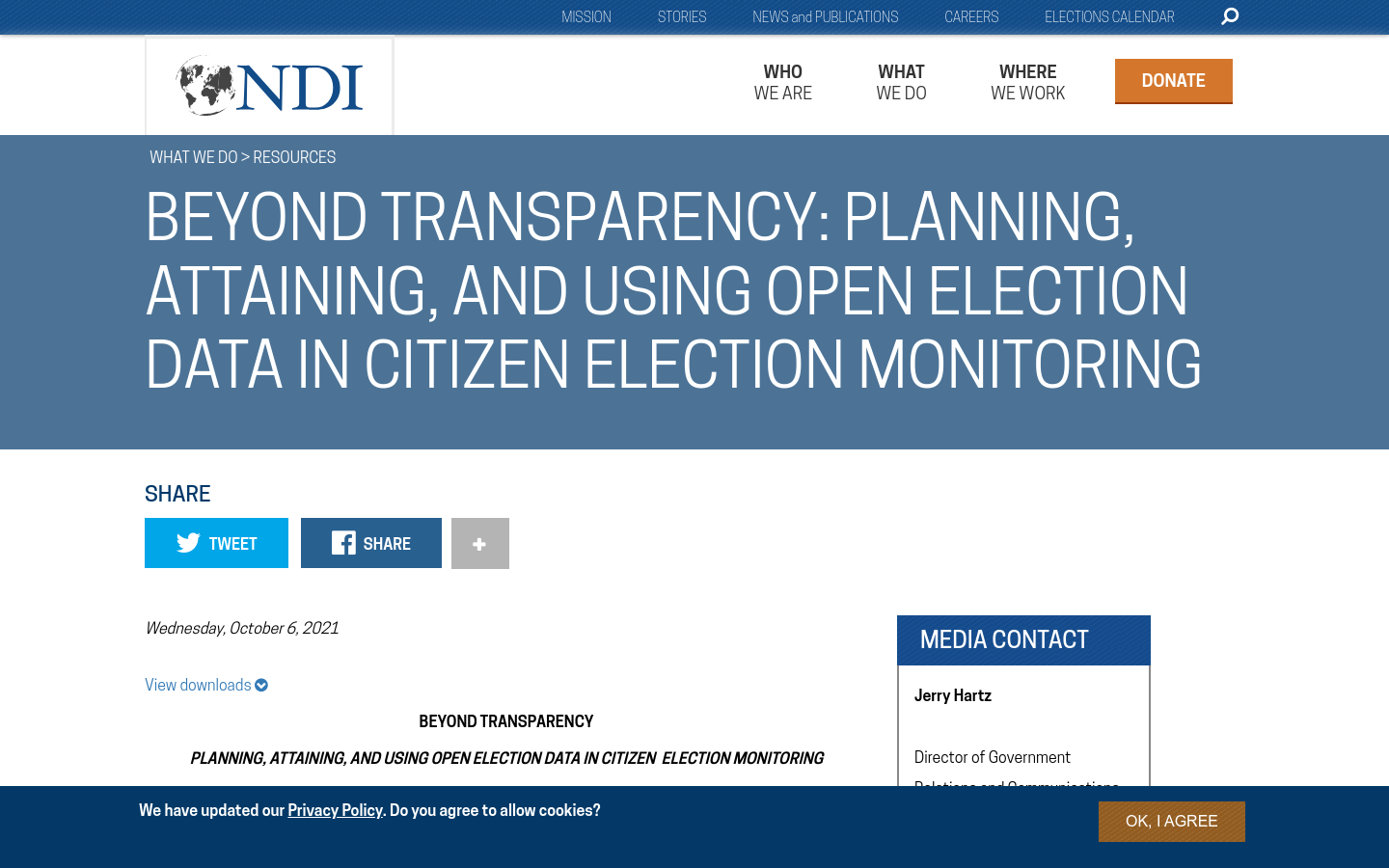Civic Tech Field Guide
Sharing knowledge and productively growing the fieldSearch Results - civic (2978)
Showing 2978 Results

Governments have an opportunity to harness big data solutions to improve productivity, performance and innovation in service delivery and policymaking processes.

This book combines theoretical and practical knowledge about key actors and driving forces that help to initiate and advance open data governance.
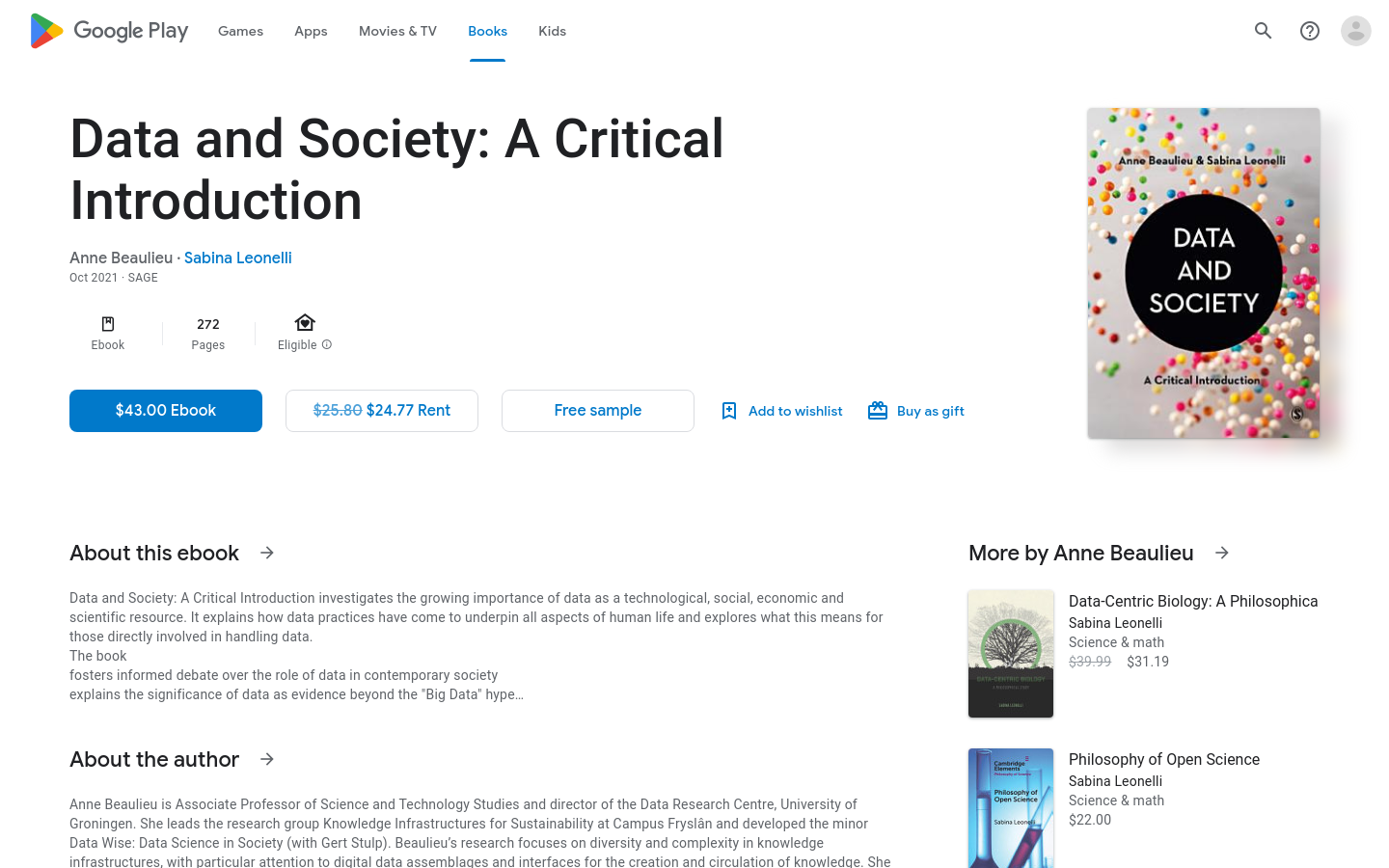
Data and Society: A Critical Introduction investigates the growing importance of data as a technological, social, economic and scientific resource.

Resource guide for children for learning political action skills that can help them make a difference in solving social problems at the community, state, and national levels.

Is this true? In Uneven Innovation, Jennifer Clark considers the potential of these emerging technologies as well as their capacity to exacerbate existing inequalities and even produce new ones

Packed with practical classroom resources, examples from popular culture, and engaging insights into the CIA analyst role, this book is designed to support middle and high school teachers with news and media literacy in social studies, ...

Authors Andrew Young and Stefaan Verhulst, both with The GovLab at New York University, explain how these projects have made governments more accountable and efficient, helped policymakers find solutions to previously intractable public ...

Working with Data in the Public Sector: From Fear to Enthusiasm is the first book designed for practicing and future public administration professionals to help overcome any anxiety about using data effectively in their roles.

This book is written to make it easier and faster for someone to get up to speed on Government Open Data (here on in referred to as 'open data')
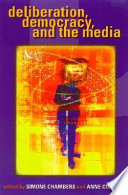
Interdisciplinary discussion of the ways in which the media is and can be used in the service of deliberative equality within the public sphere--and of the ways in which the media can function to both facilitate and inhibit deliberative

This work was published by Saint Philip Street Press pursuant to a Creative Commons license permitting commercial use. All rights not granted by the work's license are retained by the author or authors.

Technology also expands the nature and volume of data collected by governments, altering the significance of open government data and rendering its practice more complex. In this evolving context, this book explores the future of open data.

Drawing on the theoretical debates, practical applications, and sectoral approaches in the field, this ground-breaking Handbook unpacks the political and regulatory developments in AI and big data governance. Covering the political implications of big data and AI on international relations, as well as emerging initiatives for legal regulation, it provides an accessible overview of ongoing data science discourses in politics, law and governance. This title contains one or more Open Access chapters.

As we move into an era of unprecedented volumes of data and computing power, the benefits aren't for business alone. Data can help citizens access government, hold it accountable and build new services to help themselves. Simply making data available is not sufficient. The use of data for the public good is being driven by a distributed community of media, nonprofits, academics and civic advocates. This report from O'Reilly Radar highlights the principles of data in the public good, and surveys areas where data is already being used to great effect, covering: Consumer finance Transit data Government transparency Data journalism Aid and development Crisis and emergency response Healthcare
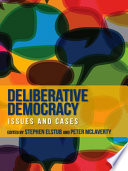
In this book, a number of leading democratic theorists address the key issues that surround the theory and practice of deliberative democracy

Hence the volume offers an intellectual resource that expands on the current literature, but also provides a pedagogical resource to universities as well as a reflective opportunity for practitioners.

The book revolves around recent developments in specific scientific disciplines, including biology, ecology, computer science, astronomy, and cognitive science.

Please note that the content of this book primarily consists of articles available from Wikipedia or other free sources online
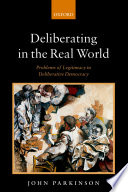
And why would people with passionatelyheld views sit down and deliberate when there seems little advantage in them doing so?This book explores these problems in theory and practice, searching for a solution that does not merely dismiss a

We must educate, inform and train the masses. The development of related technologies, such as the advent of the Internet, social networks, "cloud-computing" (digital factories), has increased the available volumes of data.

This book discusses the implications of recent innovations in information and communication technology for civic and political engagement.

This text takes a fresh look at the foundations of the field, and develops new applications in areas ranging from citizen participation to the democratization of authoritarian states to the global system

Participatory Budgeting (PB) exists at varying scales in more than 3,000 cities across the globe and the process continues to expand both in scale and in new technology, particularly as digital technologies are being integrated into a ...

It begins with a startlingly basic question: "e;Why don't we the people govern?"e; In this provocative book, the authors mount a powerful case that the time has come for more direct democracy in the United States, showing that the

The first comprehensive account of the booming phenomenon of deliberative mini-publics, this book offers a systematic review of their variety, discusses their weaknesses, and recommends ways to make them a viable component of democracy

This book relies on the conceptual model of Open Government (OG), focusing on transparency and, concretely, in open data initiatives at the local government context with the aim of improving participation and collaboration.

The Data Librarian’s Handbook, written by two data librarians with over 30 years’ combined experience, unpicks the everyday role of the data librarian and offers practical guidance on how to collect, curate and crunch data for economic, ...

Two specific challenges are at the core of this book's argument that media literacy is the path toward more active and robust civic engagement in the 21st century: How can media literacy enable core competencies for value-driven, diverse ...

How do we ensure that implementations of Open Data Now products are done in a way that ensures safety?

Analyzing the Role of Citizen Science in Modern Research focuses on analyzing data on current initiatives and best practices in citizen engagement and education programs across various disciplines.

Data-gathering technology is more sophisticated than ever, as are the ethical standards for using this data. This second edition shows how to navigate this complex environment. Data Ethics provides a practical framework for the implementation of ethical principles into information management systems. It shows how to assess the types of ethical dilemmas organizations might face as they become more data-driven. This fully updated edition includes guidance on sustainability and environmental management and on how ethical frameworks can be standardized across cultures that have conflicting values. There is also discussion of data colonialism, the challenge of ethical trade-offs with ad-tech and analytics such as Covid-19 tracking systems and case studies on Smart Cities and Demings Principles. As the pace of developments in data-processing technology continues to increase, it is vital to capitalize on the opportunities this affords while ensuring that ethical standards and ideals are not compromised. Written by internationally regarded experts in the field, Data Ethics is the essential guide for students and practitioners to optimizing ethical data standards in organizations.

This book will be essential reading for students and scholars of democratic theory, as well as anyone who is curious about the prospects for more rational decision-making in an age of populist passion

This book highlights some of the most fascinating current uses, thought-provoking changes, and biggest challenges that Big Data means for our society


